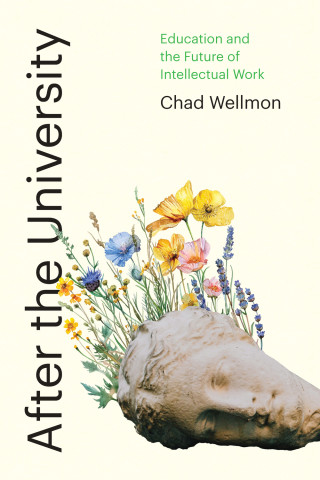
Reviews
[The] points that Douglass makes...are quite illuminating....The state of US colleges and universities is to a great extent a product of and reflects the political traditions, for good and evil, and the present-day balance of political forces in our country....The essays in this collection suggest that any efforts to defend the intellectual freedom and institutional independence of scholars and the colleges and universities in which they work will fall short if they are divorced from constructive and active engagement in the political environment...
Neo-nationalism and Universities captures the breadth of the threat that right-wing populists, demagogues, and autocrats pose to universities, to their communities of students and faculty, and to civil society and international cooperation. In an analysis of the rise of neo-nationalism based on case studies, Douglass and his colleagues outline how universities can be both responsive and influential.
A superb and very timely book, scholarly, original, and easy to read. I know of no other book that covers these issues in the same level of detail.
This volume makes a valuable contribution to our understanding of the politics and policies of neo-nationalism in universities around the world. It will be useful to scholars of higher education, comparative education, and comparative politics, as well as higher education leaders and policy makers. Anyone concerned about the future of universities in liberal democracies should read this book.
In this illuminating and timely analysis, Douglass and his colleagues examine the political and cultural influences on what appears to be a rising trend toward neonationalism in universities around the world. Well informed, grounded in astute research, and revelatory in its findings and implications, this book is also clearly written and easily understood—a stimulating set of insights for any reader who cares about universities and their future.
Leading scholar John Aubrey Douglass has brought together an outstanding group of collaborators to examine one of the most disturbing trends of our time: the impact of illiberal nationalist movements on intellectual life. Under the new nationalists, the university's role as critic has declined precipitously, as has its role as impartial arbiter of truth-claims. The book employs a dispassionate analysis of authoritarian regimes to distinguish between varieties of neo-nationalism and their potential impacts, from limited constraints to severe consequences for dissent.
This illuminating book explores the return and strengthening of authoritarian regimes that is threatening discovery and new knowledge, as well as the academics who produce and diffuse it. Far from treating neo-nationalism as a monolithic wave, the contributors to this necessary book reveal its alerting and growing influence, providing a subtle and thorough analysis of the variety of its form and consequences.
During the past two decades, we have witnessed the rise of nationalism and populism around the world. Neo-Nationalism and Universities is a timely and welcome study of the impact of these movements on higher education, especially in the realm of academic freedom and freedom of speech. Of special value is the book's exploration of the role universities play in accommodating and providing ideological cover for authoritarian and totalitarian rule.
The rise of neo-nationalism presents new questions about the relationships between higher education, governments, and society. It also reopens the debate on older themes, including topics (e.g. academic freedom) we hoped had been largely resolved. The contributors to this volume carefully and eloquently analyze developments in a variety of countries, with a keen eye for the various guises of neo-nationalism, the particular national contexts in which it emerged, and the important ramifications for higher education.
Saying that this book addresses a timely and critical issue is an understatement. Even more importantly, it presents a variety of national and comparative chapters that highlight the complexities and nuances of the national dimensions of higher education.
Attempts to silence academics and control universities place democracy, development, and social well-being at risk. This book is an important warning for academics worldwide that democracy is fragile, and that universities must be the frontline in the battle for its protection.
This brilliantly insightful, well-evidenced book by John Douglass and his international collaborators offers a unique and comprehensive analysis of contemporary tensions from a global perspective. It is not only timely and essential reading for today's researchers, policy makers, educational leaders, and engaged members of the wider public, it will stand for decades as the pivotal text on the topic.
Book Details
Preface. Something's Going On
John Aubrey Douglass
Chapter 1. Neo-nationalism and Universities in Historical Perspective
John Aubrey Douglass
Chapter 2. Neo-nationalism and Universities: A Conceptual
Preface. Something's Going On
John Aubrey Douglass
Chapter 1. Neo-nationalism and Universities in Historical Perspective
John Aubrey Douglass
Chapter 2. Neo-nationalism and Universities: A Conceptual Model
John Aubrey Douglass
Chapter 3. The Mystery of Brexit: Tumult and Fatigue in British Higher Education
Brendan O'Malley
Chapter 4. Trumpian Nationalism and American Universities
John Aubrey Douglass
Chapter 5. Turbulent Times: Intellectual and Institutional Challenges for Universities in Germany, Hungary, and Poland
Wilhelm Krull and Thomas Brunotte
Chapter 6. Neo-nationalism in the European Union and Universities
Marijk van der Wende
Chapter 7. Turkish Academics in the Era of Erdoğan
Brendan O'Malley
Chapter 8. Nationalism Revived: China's Universities under President Xi
Karin Fischer
Chapter 9. Balancing Nationalism and Globalism: Higher Education in Singapore and Hong Kong
Bryan E. Penprase and John Aubrey Douglass
Chapter 10. The Role of Universities in Putin's Russia: Reinforcing the State
Igor Chirikov and Igor Fedyukin
Chapter 11. Bolsonaro's Brazilian Neo-nationalism and Universities
Elizabeth Balbachevsky and José Augusto Guilhon Albuquerque
Notes
Contributors
Index





